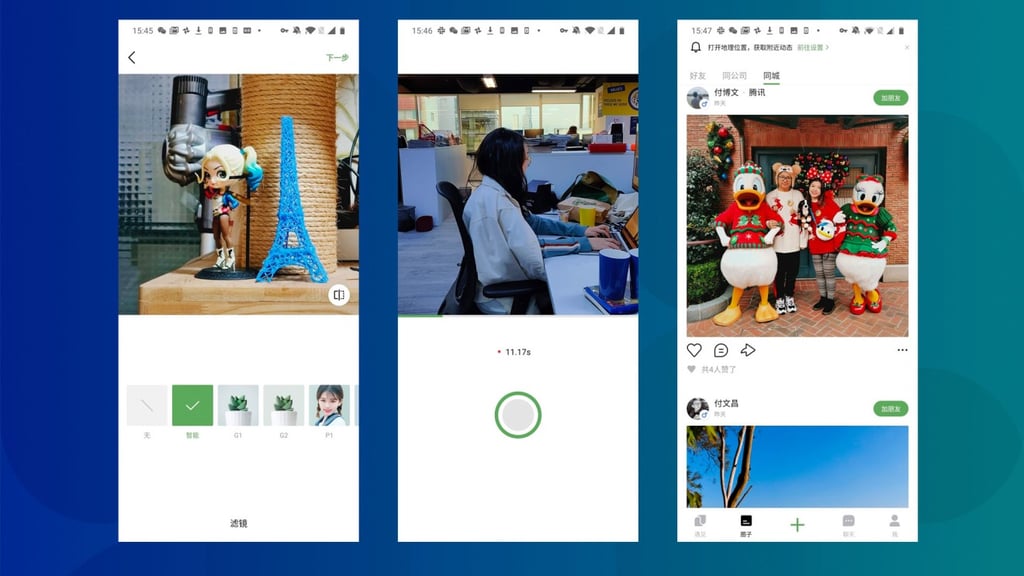Tencent’s resurrected social app is Facebook, Instagram and Tinder wrapped into one
The Chinese giant behind WeChat is quietly trialling a revamped version of Pengyou as it faces competition from ByteDance and others for teenage users

WeChat, the app that does everything
Days later, Tencent quietly started sending out invite codes to Pengyou. Armed with my own code, I took a look at what Tencent’s new social network is offering.

The layout is similar to Instagram, with the same square pictures and buttons for liking and commenting. There are also a variety of photo filters and video trimming tools.
But whereas Instagram and WeChat both lump posts from all your connections into a single feed, Pengyou divides them into three tabs: Friends, colleagues, and people living in the same city.
Interestingly, the app also asks users to upload personal credentials like diplomas or a company letter for verification. The real name approach is supposedly designed to stop profit-seeking businesses from getting onto the platform while bringing some transparency to app to better help people select who they want to interact with.